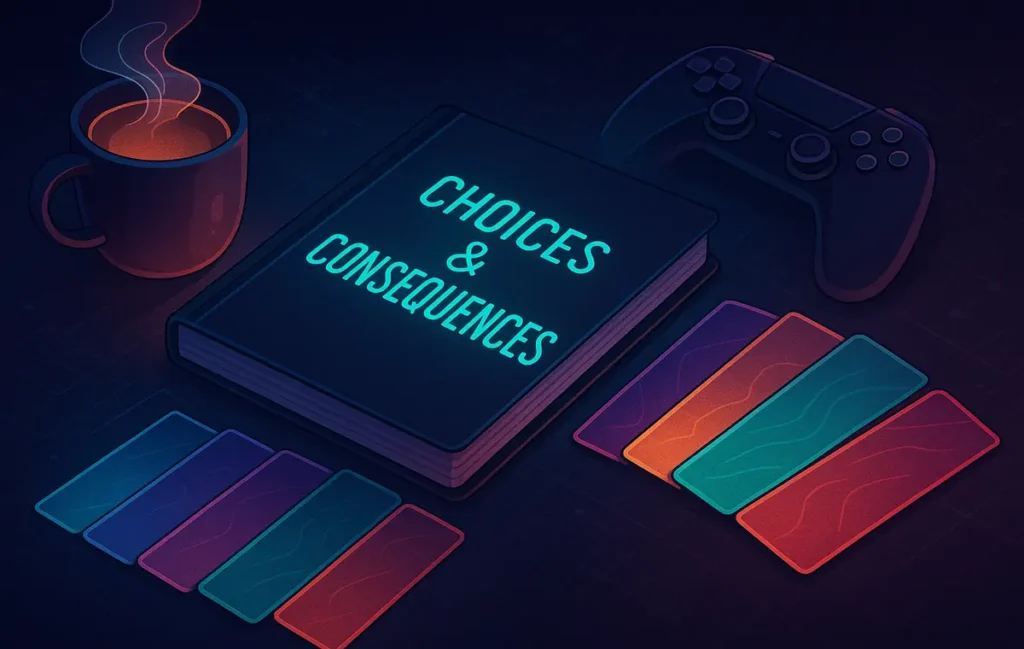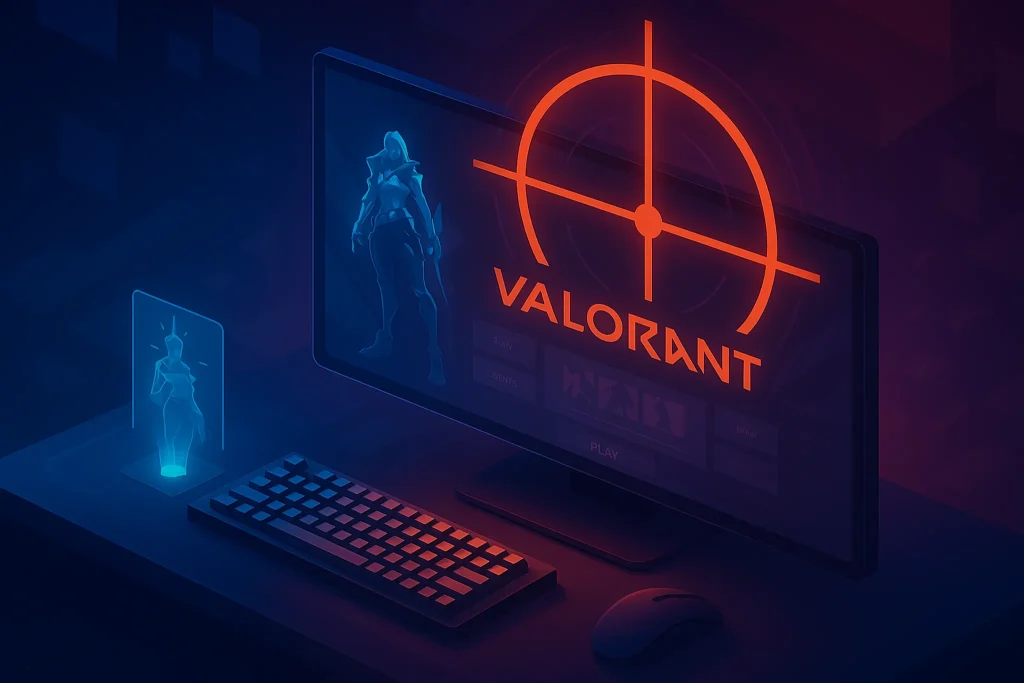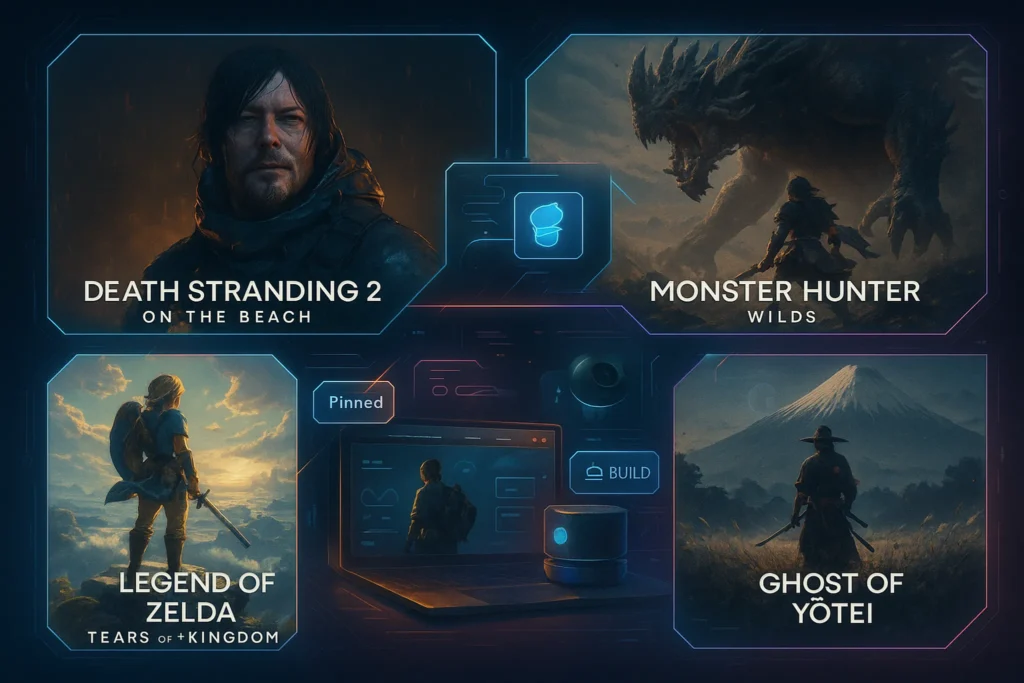Intro:
Some games are about perfect combos and high APM. These are about you. Narrative, character, and the messy, thrilling art of choosing who you’ll be when stakes get personal. “Choices matter” isn’t a marketing bullet here—it’s the design spine. The best story-driven games weave your actions into the world’s memory: who lived, who left, what burned, and what you decided was worth saving. In this guide, we break down five modern classics across genres and tones so you can pick the right first step—and understand how these games transform your decisions into consequences you’ll still be debating next month.
💡 Nerd Tip: Before you dive in, decide on your “playstyle contract.” Are you role-playing a character no matter the cost—or chasing the “best” outcomes? Knowing this upfront makes tough calls cleaner and replays richer.
🎭 How Choice Design Actually Works (and Why It Feels Different)
Under the hood, narrative games manage state: flags you flip with dialogue lines, saved lives, locations visited, debts paid. Designers then gate scenes, alter character trust, and branch endgames based on those states. Some branches are hard splits—entire chapters you’ll only see if a rare condition is met. Others are soft echoes—a line of recognition, a changed reward, a friend who shows up two hours later because you were kind three hours earlier. The magic trick is delayed consequence: letting your decision breathe so it feels lived-in, not transactional.
Depth also varies. A game can have hundreds of micro-branches and still funnel you into shared finales, or fewer choices that cause tectonic shifts. Both models can be satisfying if the meaning of your choice is honored. If you prefer deeply reactive RPGs on the go, we’ve hand-picked portable gems in Best Story-Driven RPGs for Nintendo Switch—perfect for story sessions on flights or commutes.
💡 Nerd Tip: The earlier the game teaches you “everything counts,” the more conservative you should be with quick-save scumming. Live with imperfect choices; it pays narrative dividends later.
🐺 The Witcher 3: Wild Hunt — Politics, Promises, and the Price of Mercy
Geralt’s world is morally gray and ruthlessly consistent. Choose compassion in chapter two, and chapter three might send you a receipt you didn’t ask for. Witcher 3’s standout feature is contextual consequence: decisions don’t just toggle “good/bad” karma—they restructure alliances, markets, even whether a village exists. Dialogue trees hide as many risks as they reveal, which makes role-playing intoxicating. You’re not picking colors; you’re picking values—family obligations, statecraft, or witcher neutrality—and living with the fallout.
A small spoiler-safe example: spare a monster because its story moved you, and an NPC later treats you with suspicion in a different questline that “remembers” your leniency. Save a noble during a local dispute, and a different region recalibrates how it welcomes you hours later. None of this feels procedural because the writing anchors cause and effect in culture, not meters. Players often report their second playthrough feels new simply because earlier instincts changed one scene six hours in—which reshaped who stood with them at hour forty.
If you want a cozier, slower burn between monster contracts, park a chill palate cleanser from Cozy & Casual: 10 Relaxing Games for Stress-Free Fun alongside your Witcher run. Your patience—and your empathy—will last longer.
💡 Nerd Tip: Don’t sprint to map icons. Follow character arcs. The biggest consequences often hide in “minor” personal quests that ripple into the mainline later.
🕵️ Detroit: Become Human — Branching Cinematic Drama with Receipts
Detroit is a flowchart you can feel. After each chapter, the game shows a map of paths taken (and not taken), immediately validating that “what if” itch. Choices are granular: micro-timed QTEs, conversational trust checks, and high-stakes sacrificial calls. The brilliance isn’t just the breadth of paths—it’s the thematic coherence across them. Whether you steer Markus toward peaceful protest or violent uprising, the narrative interrogates the costs of your chosen tactic. Whether Connor stays machine-cold or learns to deviate, the game mirrors that arc in his relationships and the city’s mood.
Replays are irresistible because Detroit respects fail-forward design: missed prompts don’t simply reload you; they write a different chapter. My favorite dynamic is how public sentiment—nudged by your small choices—reshapes endgame possibilities. And because performances carry a lot of weight, couch co-op decision-making (passing the controller, debating lines) turns Detroit into an instant “movie night with agency.” For more social options when you want friends interacting with the story, line up a weekend with picks from Top PC Games to Play with Friends Online—several titles on that list reward shared choices and collective chaos.
💡 Nerd Tip: Accept failure on first runs. The most memorable scenes in Detroit are often the ones you didn’t plan.
🧨 Until Dawn — Horror Where Every Instinct Is a Butterfly
Until Dawn takes the butterfly-effect promise literally, surfacing a codex of “butterfly updates” whenever a seemingly trivial decision changes your future. It’s campfire horror executed with surprising rigor: don’t charge your phone? That matters. Don’t tell a lie early? That matters. The game turns teen-slasher tropes into systems, where quick-time windows, timed dialogue, and “don’t move” sequences (leveraging motion sensors) are the difference between a group epilogue and a morgue roll call.
The design genius lies in information scarcity. You rarely know which behavior is “correct,” so you default to gut checks about characters—not optimization. That makes the consequences feel fair even when they’re brutal. For couples and friend groups, Until Dawn is an excellent “pass-the-pad” drama, especially if each person claims a character’s choices. When you want to keep the co-op vibes going but shift genres, flip to the party-friendly recommendations in Best Co-Op Indie Games on Steam—great for post-horror decompressing.
💡 Nerd Tip: Make a pact before chapter one: no rewinds. Horror works best when the past can’t be fixed.
🎬 Ready to Live With Your Choices?
Grab a story-first game, pick a personal playstyle, and commit to a no-reload first run. Want a printable decision tracker and a replay planner?
🌪️ Life Is Strange (Season 1) — Time Travel as a Moral Teacher
Life Is Strange hands you a power fantasy—rewind time, test the line, pick the “best” outcome—and then slowly teaches you the limits of control. Choices you clean up locally spill far beyond what a quick rewind can solve. The game excels at relationship consequence: how you speak to a friend on a bad day echoes through crises later, how you handle rivalries reshapes whether people extend grace when you most need it. It’s empathetic design in YA clothes—vulnerable, messy, real.
Where Life Is Strange separates itself is tonal fidelity. Small gestures (photo ops, optional conversations, quiet choices of presence) carry as much narrative oxygen as big “binary switches.” That keeps you role-playing instead of min-maxing. And if you’re building a backlog of narrative-first experiences beyond the big publishers, our roundup Top 10 Indie Games surfaces story jewels from small teams that prize voice and heart over spectacle.
💡 Nerd Tip: Talk to everyone. LIS rewards curiosity with micro-scenes that later unlock dialogue options when it counts.
🗳️ Disco Elysium — Politics of the Self, Written in Scars
Disco Elysium isn’t about saving the world; it’s about assembling who you are from broken pieces and dangerous ideas. Choices manifest through internal monologues—your “skills” are voices arguing for control. Do you let Inland Empire’s surreal instincts steer the conversation, or do you side with Logic’s icy clarity? Your build (and the ways you fail) becomes the author of your story, with failures unlocking surprising, often profound scenes. It’s a masterclass in reactive writing: the city remembers your stink, your kindness, your cowardice.
Consequences in Disco are often philosophical rather than pyrotechnic: political alignments bleed into how factions treat you, a compassionate choice earns a confession that breaks a case, a craven one closes doors you didn’t know existed. The pacing encourages long, reflective sessions—perfect for story nights. When your brain needs a gentler palate cleanser between ideological brawls, dip into something restorative from Cozy & Casual: 10 Relaxing Games for Stress-Free Fun so you return to Martinaise ready to listen.
💡 Nerd Tip: Embrace the critical fail. Disco’s best scenes often hide behind a spectacularly bad roll that leads you somewhere human.
🧪 Mini Comparison: Which “Choices Matter” Game Fits You?
| Game | Core Flavor | Consequence Style | Replay Pull | Stress Level |
|---|---|---|---|---|
| The Witcher 3 | Epic fantasy, politics | Long-tail, world reactivity | High (values shift runs) | Moderate |
| Detroit: Become Human | Cinematic sci-fi drama | High-branch, visible flowcharts | Very high (chapter experimentation) | Low-Moderate |
| Until Dawn | Slasher horror | Life/death butterfly effects | High (save/lose different cast) | High |
| Life Is Strange S1 | YA mystery, empathy | Relationship-driven, moral echoes | Moderate-High (alt bonds) | Low-Moderate |
| Disco Elysium | Detective philosophy | Internal build shapes scenes | Very high (build/failure variance) | Moderate |
💡 Nerd Tip: If you only have weekends, pick Detroit or Until Dawn for punchy, movie-night arcs. If you want a long, reflective novel, start with The Witcher 3 or Disco.
🧱 How to Play for Maximum Impact (Without Killing the Magic)
The paradox of narrative games is that optimization can shrink the story. If you wiki every branch before chapter two, surprise dies. Instead, set a first-run rule: no reloads unless the game forces one. Role-play a coherent character—fearful, principled, ambitious, serene—and let that compass carry you through bad outcomes. Keep a simple notes doc with names, loyalties, and your “red lines.” That single page becomes gold on replays when you decide to break your own rules and see who else you could have been.
Replays are different sports. On a second Detroit run, deliberately choose the tactics you rejected. In Witcher 3, side with factions you distrusted. In Disco, respec into a wildly different mental chorus. If you want structured help building a backlog that keeps fresh emotional notes, our editorial lists—Best Story-Driven RPGs for Nintendo Switch and Top 10 Indie Games—stack wonderfully with this replay strategy.
💡 Nerd Tip: Screenshot big decisions and their outcomes. You’ll thank yourself when you debrief with friends or plan a second run six months later.
🧰 Quick Start Checklist (10 Minutes Before You Begin)
-
Pick your “first-run rule” (no reloads / only reload for crashes).
-
Set subtitle size, brightness, and controller sensitivity for comfort.
-
Jot a 1-sentence character anchor (“spare the innocent,” “truth at any cost”).
-
Decide on a debrief ritual: journal or voice note after big chapters.
-
Agree with co-players on who decides for which characters (if couch co-op).
💡 Nerd Tip: Treat this like a book club. A 5-minute debrief after sessions cements meaning and primes better choices next time.
🌍 Beyond the Big Five: Curating Your Narrative Backlog
Once you catch the bug, you’ll want a steady diet of story games across vibes: comfort, dread, wonder. That’s where curation helps. If you prefer gentle storytelling and bite-size sessions, fold in recs from Cozy & Casual: 10 Relaxing Games for Stress-Free Fun between heavier arcs like Disco. If you want shared decision chaos, browse Best Co-Op Indie Games on Steam and then rotate squads via ideas from Top PC Games to Play with Friends Online. And when your mood leans toward handheld epics, the picks in Best Story-Driven RPGs for Nintendo Switch are tailor-made for plane rides and late-night couch time.
💡 Nerd Tip: Keep a “Narrative Queue” note with mood tags (comfort, thriller, epic). Pick your next game by mood, not hype.
📬 Want More Smart AI Tips Like This?
Join our free newsletter and get weekly insights on AI tools, no-code apps, and future tech—delivered straight to your inbox. No fluff. Just high-quality content for creators, founders, and future builders.
🔐 100% privacy. No noise. Just value-packed content tips from NerdChips.
🧠 Nerd Verdict
Great narrative games don’t just remember your choices—they teach you how to choose. The Witcher 3 shows that mercy is complicated in a broken world. Detroit tests your tactics and asks what victory costs. Until Dawn punishes indecision and rewards attention. Life Is Strange reframes time travel as a lesson in empathy and consequence. Disco Elysium turns your mind into a party of unreliable narrators and still finds grace in failure. Together, they’re a crash course in interactive storytelling’s superpower: agency with accountability.
At NerdChips, our bias is clear: play fewer games more deeply. Role-play hard, accept imperfect outcomes, and replay with intention. If you build that habit, your stories will follow you out of the screen—and the next “choices matter” headline won’t feel like a gimmick. It’ll feel like an invitation.
❓ FAQ: Nerds Ask, We Answer
💬 Would You Bite?
Which kind of consequence grabs you most—long-tail political ripples, visible branch maps, or life-and-death butterfly effects?
If you had to start this weekend, which one from the five would you pick—and why?
Crafted by NerdChips for players who want their stories to remember them—and their choices to echo after the credits.



